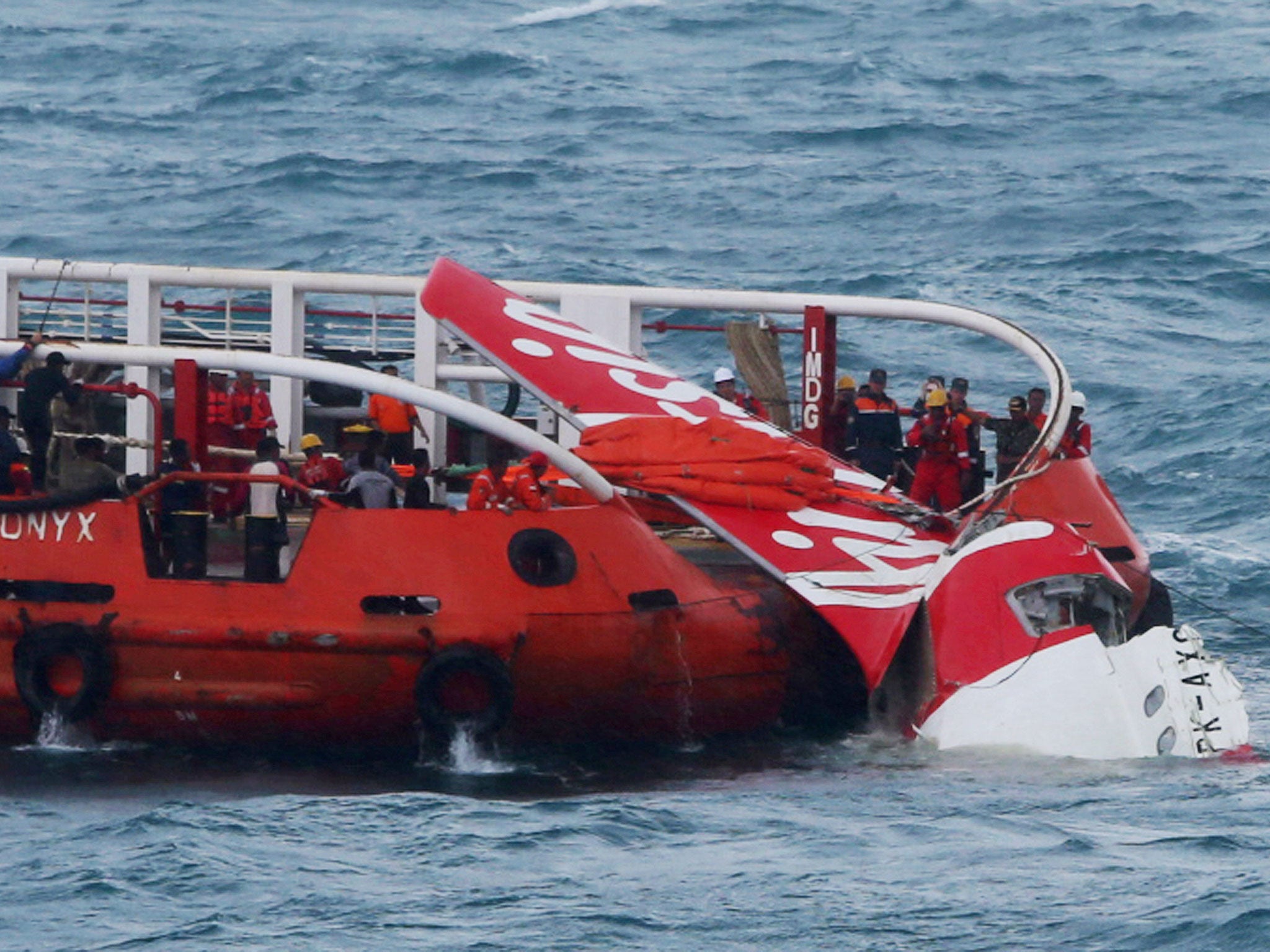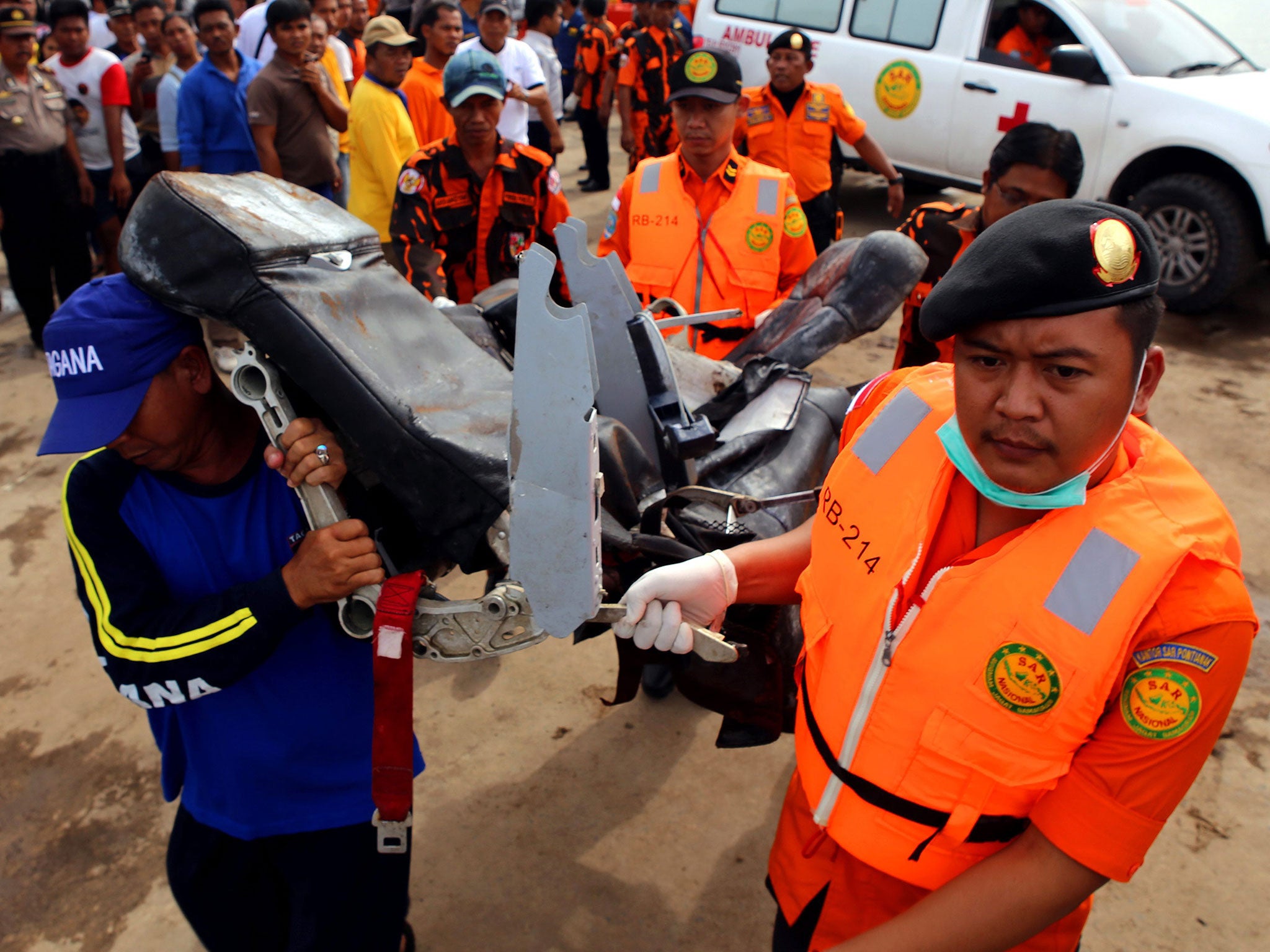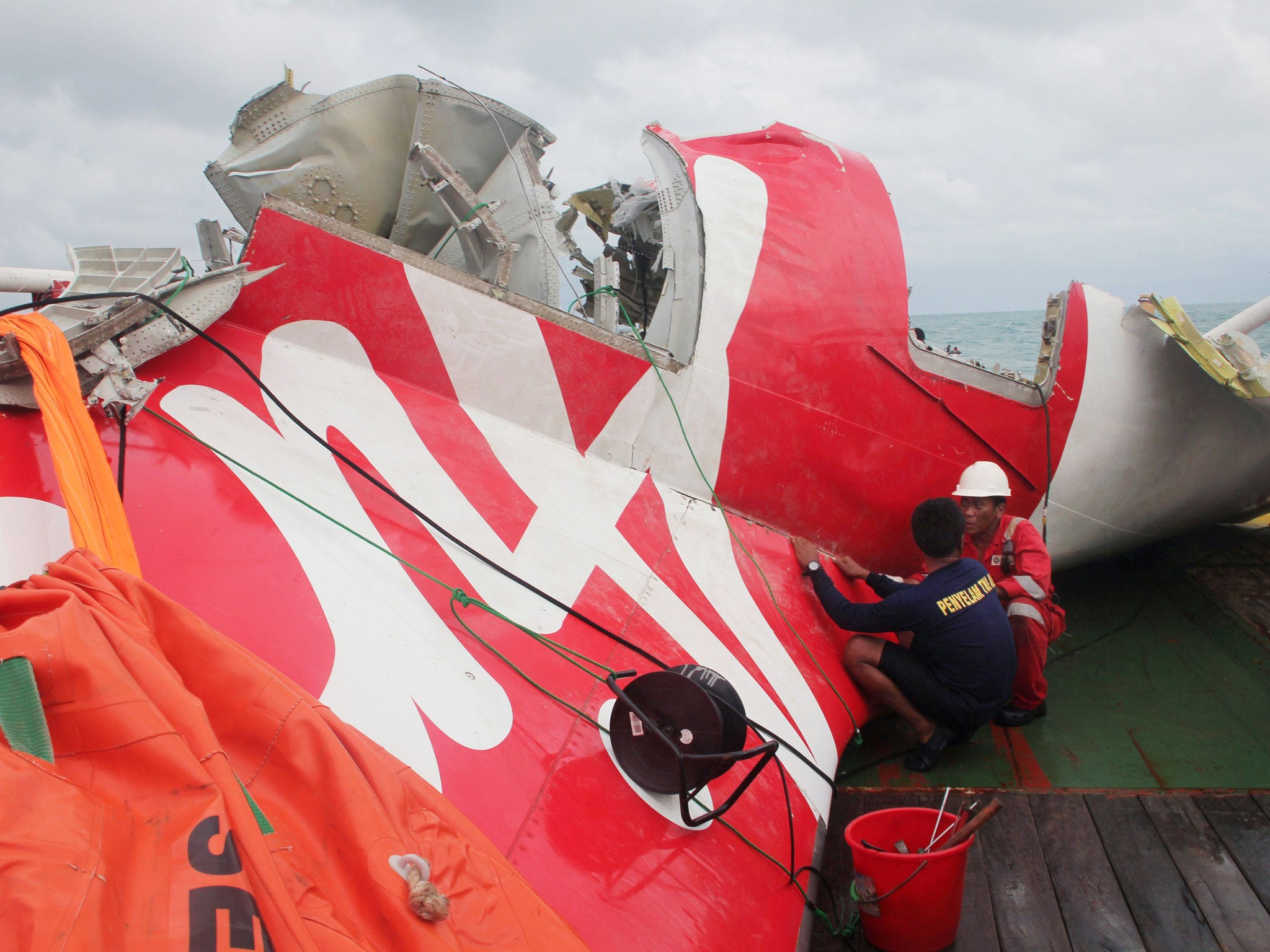AirAsia flight QZ8501: Captain's behaviour 'very unusual' prior to crash, investigators learn
He left his co-pilot in charge but arrived back at his seat too late to save the plane

Your support helps us to tell the story
From reproductive rights to climate change to Big Tech, The Independent is on the ground when the story is developing. Whether it's investigating the financials of Elon Musk's pro-Trump PAC or producing our latest documentary, 'The A Word', which shines a light on the American women fighting for reproductive rights, we know how important it is to parse out the facts from the messaging.
At such a critical moment in US history, we need reporters on the ground. Your donation allows us to keep sending journalists to speak to both sides of the story.
The Independent is trusted by Americans across the entire political spectrum. And unlike many other quality news outlets, we choose not to lock Americans out of our reporting and analysis with paywalls. We believe quality journalism should be available to everyone, paid for by those who can afford it.
Your support makes all the difference.The captain of the AirAsia jet that crashed into the sea off Indonesia in December was out of his seat conducting an unusual procedure when his co-pilot apparently lost control.
By the time he returned it was too late to save the plane, two people close to the investigation told news agency Reuters.
They said that investigators were examining the Flight Augmentation Computer (FAC) recovered from the Airbus A320, and that the captain had taken the “very unusual” step of disabling the system.
"You can reset the FAC, but to cut all power to it is very unusual," said an A320 pilot, who chose to remain anonymous.
"You don't pull the circuit breaker unless it was an absolute emergency. I don't know if there was one in this case, but it is very unusual."
To do this, the captain would have had to leave his seat, and reach behind the co-pilot.

Experts said the loss of the FAC would not directly alter the trajectory of an aircraft but that it would remove flight "envelope protection", which prevents a pilot from taking a plane beyond its safety limits.
Shortly after the pilot is believed to have disabled the FAC, Flight QZ8501 went into a sharp climb from which investigators have said it stalled or lost lift.
"It appears he (the co-pilot) was surprised or startled by this," said a person close the investigation, referring to the decision to cut power to the FAC.
"The co-pilot pulled the plane up, and by the time the captain regained the controls it was too late."

This contradicts reports earlier this week which claimed the co-pilot was in control at the time of the crash, after the plane’s flight data recorder was analysed.
AirAsia said it would not comment while the matter was under investigation by the National Transportation Safety Committee (NTSC) of Indonesia.
Tatang Kurniadi, chief of the NTSC, told Reuters there had been no delay in the captain resuming the controls, but declined further comment.
The Airbus A320 jet plunged into the Java Sea during a flight from Indonesia to Singapore on 28 December, killing all 162 people on board.
Additional reporting by Reuters
Join our commenting forum
Join thought-provoking conversations, follow other Independent readers and see their replies
Comments